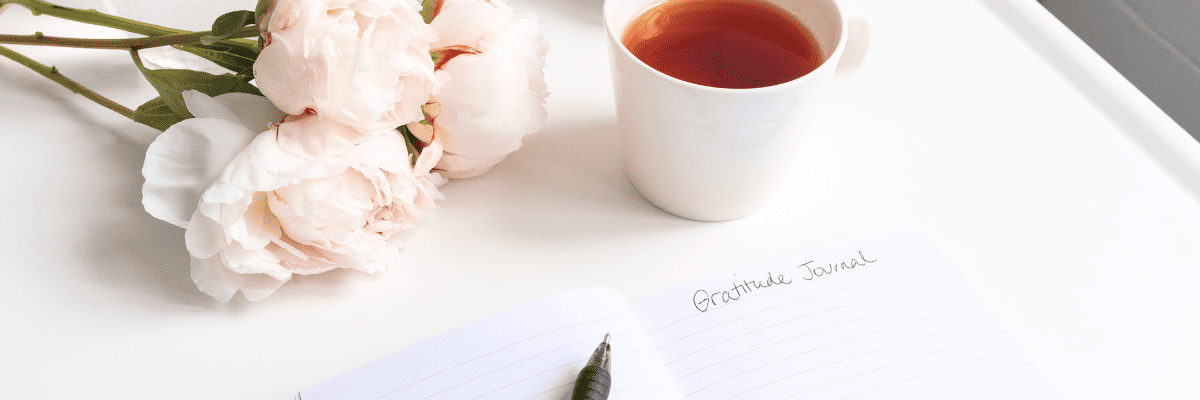How to Journal Daily: A Step-by-Step Guide for Beginners

This post containsThis post contains affiliate links. If you choose to buy something from a link, I may receive a small commission at no extra cost to you. Thank you for supporting my site.
Are you looking for a way to explore your innermost thoughts, boost your mental health, and develop a deeper understanding of yourself? Learning how to journal daily might be just the answer you’ve been searching for.
In this comprehensive guide, I’ll walk you through the process of starting a journaling routine, covering everything from selecting the right tools to overcoming common challenges and experimenting with various techniques. By the end of this journey, you’ll be well-equipped to embark on your own path toward personal growth and self-discovery through the power of journaling.
Key Takeaways
- Journaling is an effective way to foster personal growth, reduce stress, and improve mental health.
- Choose the right tools for your journaling practice & establish a routine that works for you!
- Overcome common challenges & explore creative techniques to Enrich your experience.
How to Journal Daily: The Importance

Daily journaling offers many benefits beyond simply recording your day-to-day experiences in a daily journal. Committing to maintaining a daily journal entry is an investment in your personal growth and well-being.
The act of writing in a journal can provide numerous benefits, including:
- Facilitating self-reflection
- Providing stress relief
- Encouraging personal growth
- Improving mental health
Delving into the world of journaling, you’ll quickly realize there’s no definitive right or wrong approach. Identifying a method that suits you and maintaining consistency in your daily journaling routine is crucial.
Self-Reflection
Journaling, including bullet journaling, is a powerful tool for self-discovery and self-awareness. Putting pen to paper creates a judgment-free space for exploring your thoughts, feelings, and experiences through journal entries.
This self-reflective practice allows you to identify areas of growth and development, gain an understanding of your motivations and behaviors, and ultimately, become more self-aware. One effective journaling idea is to incorporate bullet journaling techniques into your daily routine during a journaling session.
The beauty of journaling lies in its versatility – you can experiment with various journaling techniques and prompts to find what resonates with you the most. This flexibility ensures that your journaling practice remains fresh, engaging, and highly beneficial to your personal growth.
Stress Relief
In today’s fast-paced world, stress is an inevitable part of our daily lives. However, journaling can serve as a powerful stress-relief tool, allowing you to unload your thoughts and emotions onto the page.
Whether through a dedicated gratitude journal or simply writing down your feelings and frustrations, putting pen to paper can provide an emotional release, leaving you feeling lighter and more at ease. Focusing on life’s positive aspects can help shift your mindset, providing solace amid stress and chaos.
Personal Growth
Journaling is not only a means of self-expression but also a catalyst for personal growth. When you consistently write in your journal, you create a roadmap of your journey, allowing you to track your progress and stay motivated to keep going.
Setting specific goals and documenting your achievements propels you toward becoming the best version of yourself. Gratitude journaling, in particular, can be transformative, helping you to recognize and appreciate the positive moments in your life and fostering a greater sense of joy and fulfillment.
Embrace the power of journaling to unlock your potential and embark on a path of self-improvement.
Improved Mental Health
Your mental well-being is just as important as your physical health, and journaling can significantly promote better mental health. Regular journaling can help you foster emotional balance by providing a non-judgmental space for self-expression.
Writing can bring about long-term improvements in your mental health and even contribute to faster wound healing in older adults.
Maintaining a private journal enables honest writing and true emotional expression, free from judgment or scrutiny. The key lies in making journaling a consistent practice and recognizing its profound impact on your mental well-being.
Choosing Your Journaling Tools

When it comes to journaling, there’s no one-size-fits-all solution. The best journaling tools for you will depend on your preferences and needs. Some options to consider include:
- Paper journal: Many people prefer the tactile experience of writing in a physical journal.
- Digital apps: There are numerous journaling apps available that offer convenience and additional features like reminders and prompts.
- Combination approach: Some individuals find that using both a paper journal and a digital app allows them to capture their thoughts and experiences in different ways.
Ultimately, choosing journaling tools is up to you and what works best for your practice.
Experimenting with various journaling tools allows the creation of a genuinely rewarding and enjoyable journaling practice. Ultimately, the most crucial aspect of journaling is the act of writing itself – the tools you use to facilitate this process are simply a means to an end.
Paper Journals
Traditional paper journals offer a tactile, intimate experience that many people find deeply satisfying. With a plethora of options available, you can choose a journal that suits your style and preferences, whether you prefer lined pages, blank pages, or a combination of both.
The physical act of writing in a paper journal can be soothing and therapeutic, helping you connect with your thoughts and emotions on a deeper level. Plus, there’s something uniquely gratifying about filling the pages of a paper journal with your innermost musings, creating a tangible record of your personal journey.

Digital Apps
For those who prefer the convenience and accessibility of digital journaling, there are numerous apps available to cater to your needs. Some popular digital journaling apps include:
- Day One
- Journey
- Penzu
- Diaro
- Evernote
Digital journaling apps allow you to journal on the go, ensuring you never miss an opportunity to capture your thoughts and emotions.
Many digital apps also offer additional features, such as:
- the ability to add photos, videos, and audio recordings to your entries
- the option to set reminders and prompts for regular journaling
- the ability to sync your journal across multiple devices
- the option to password protect your entries
However, it’s important to consider privacy and security when choosing a digital journaling app, as your personal information may be at risk if not adequately protected.
Combination of Both
Some individuals may prefer a hybrid approach, utilizing both paper journals and digital apps to create a comprehensive and organized journaling experience. This combination allows you to enjoy the tactile pleasure of writing in a paper journal while benefiting from the convenience and additional features offered by digital apps.
The key is finding a balance that works best for you, ensuring that your journaling practice remains engaging, rewarding, and meaningful, regardless of the tools you choose.
Establishing a Journaling Routine

Consistency is crucial when it comes to journaling. To fully reap the benefits of this practice, it’s essential to establish a regular journaling routine. This could involve writing in the morning, evening, or even sporadically throughout the day, depending on what works best for you.
Setting aside a specific time for journaling and incorporating it into your daily routine increases the likelihood of commitment and experiencing journaling’s transformative effects on mental health and personal growth.
Morning Journaling
Writing in the morning can be an excellent way to start your day with a clear and focused mind. Journaling during this time allows you to set intentions for the day, identify potential challenges, and recognize things to be grateful for.
While mornings can be busy, dedicating even a few minutes to journaling can help you cultivate a positive mindset that will carry you through the day. Experiment with morning journaling to see if it’s the right fit for your lifestyle and preferences.
Evening Journaling
Evening journaling provides an opportunity to:
- Reflect on the day’s events
- Process the emotions and experiences you’ve encountered
- Gain closure on the day
- Experience a sense of relaxation before bedtime.
Furthermore, evening journaling can also help you identify patterns in your thoughts and behaviors, allowing you to make necessary adjustments and improvements in your daily life. Try evening journaling and see how it can enhance your overall well-being.
Throughout the Day
If you find it difficult to commit to a specific time for journaling, consider writing sporadically throughout the day. This approach allows you to capture your thoughts and emotions as they arise, more accurately representing your daily experiences.
Carrying your journal and taking brief moments to jot down feelings allows for a consistent journaling routine without the overwhelm or restriction of a rigid schedule.
Overcoming Common Journaling Challenges

As with any new habit, you may encounter some obstacles along your journaling journey. Common challenges include writer’s block, perfectionism, and privacy concerns. However, these hurdles can be overcome with the right strategies and mindset.
Addressing these challenges head-on while understanding their normalcy in the journaling process helps maintain a consistent, rewarding practice, leading to personal growth and improved mental health.
Writer’s Block
Writer’s block can be a frustrating barrier to journaling, but there are various techniques to help you push through and keep your creative juices flowing. Writing prompts, setting a timer for freewriting sessions, or even changing your writing environment can help overcome writer’s block and reignite your passion for journaling.
Remember, the key is to start writing and not let temporary setbacks derail your journaling journey.
Perfectionism

Perfectionism is another common challenge faced by journalers. The desire to create perfect, polished entries can hinder the natural flow of thoughts and emotions that make journaling so beneficial.
I struggle with this one. I want it to be pretty and beautiful and Instagram-worthy.
To combat perfectionism, remind yourself that the primary purpose of journaling is self-expression and exploration, not the creation of a flawless masterpiece.
Focusing on the writing process rather than the end result aids in letting go of perfectionism and truly embracing journaling’s therapeutic benefits.
Privacy Concerns
Privacy is essential to journaling, as it allows you to write freely and honestly without fear of judgment. To ensure your journal remains private, consider using secure digital apps or finding a safe storage space for a physical journal.
Taking necessary precautions to protect your privacy creates a safe space for self-expression and personal growth, eliminating any lingering security concerns about your journal.
Journaling Techniques and Prompts
To keep your journaling practice fresh and engaging, try experimenting with various techniques and journal prompts. Freewriting, gratitude journaling, and reflective journaling are all excellent approaches to explore and expand your journaling repertoire.
Incorporating different techniques into your practice maintains your interest in journaling and fosters a deeper understanding of yourself and the surrounding world.
Freewriting
Freewriting is a liberating and expressive journaling technique involving writing without restrictions or self-censorship. Allowing your thoughts to flow freely onto the page encourages self-expression, creativity, and exploration of your inner world.
To practice freewriting, simply follow these steps:
- Set a timer for 10-15 minutes.
- Write whatever comes to mind, without any concern for grammar, spelling, or structure.
- Embrace the uninhibited approach to writing and let your thoughts flow freely.
- Don’t worry about making sense or being perfect.
- Use this exercise to break free from mental barriers and unlock your creative potential.
Gratitude Journaling
Gratitude journaling is a powerful practice that involves focusing on the positive aspects of your life and expressing appreciation for them. Regularly listing things you are grateful for cultivates a positive mindset and fosters a sense of joy and fulfillment.
This simple yet transformative technique can profoundly impact your mental health and overall well-being. Try incorporating gratitude journaling into your daily routine and witness the remarkable benefits it brings to your life.
Reflective Journaling
Reflective journaling is a technique that encourages introspection and analysis of your past experiences and emotions. Examining your thoughts, feelings, and actions provides valuable insights into your behavior and identifies areas for personal growth.
Reflective journaling can help you recognize patterns, understand your motivations, and become more self-aware and emotionally intelligent. Experiment with reflective journaling to discover the profound impact it can have on your personal development journey.
What is Shadow Work + 30 Shadow Work Prompts
Tracking Your Journaling Progress

To maintain motivation and consistency in your journaling practice, tracking your progress and celebrating your achievements is essential. Habit trackers and milestone celebrations can help you stay accountable, monitor your journaling frequency, and recognize the effort you’ve put into maintaining this powerful habit.
Acknowledging and rewarding your successes increases the likelihood of persevering with your journaling practice and continuing to reap its numerous benefits.
Habit Trackers
Habit trackers are versatile tools that can help you monitor your bullet journal practice and ensure you’re staying on track. Available in various formats, such as digital apps or physical calendars, habit trackers allow you to visualize your progress and maintain a sense of accomplishment as you consistently journal.
Incorporating a habit tracker into your journaling routine equips you to maintain consistency and continue enjoying the rewards of your daily journaling habit.
Celebrating Milestones
As you progress in your journaling journey, it’s crucial to acknowledge and celebrate your achievements. Whether it’s completing a journaling challenge, reaching a specific number of entries, or achieving a personal goal, these milestones are essential to maintaining motivation and staying committed to your practice.
Taking time to acknowledge and celebrate your accomplishments maintains a sense of pride in your journaling practice and reinforces the positive habits leading to your success.
Expanding Your Journaling Practice

As you become more comfortable with journaling, you may want to explore new techniques and approaches to enhance your practice and personal growth further. Creative journaling and goal setting are excellent ways to add variety and depth to your journaling experience, allowing you to express yourself in new and exciting ways.
Continuously challenging yourself and experimenting with different journaling styles keeps your practice fresh, engaging, and deeply rewarding.
Creative Journaling
Creative journaling incorporates artistic elements, such as drawings, collages, or poetry, into your practice. This approach adds variety and depth to your journaling, allowing you to express yourself uniquely.
By experimenting with creative journaling techniques, you’ll maintain your interest in journaling, discover new facets of your personality, and unlock hidden talents. Embrace your inner artist and see how creative journaling can transform your journaling experience.
Goal Setting
Your journal can also serve as a powerful tool for setting, tracking, and achieving personal goals. Documenting your objectives and monitoring your progress fosters a sense of purpose and accomplishment in your journaling practice.
This goal-oriented approach can help you stay motivated, focused, and accountable, enabling you to reach your full potential and achieve your dreams. Use your journal as a catalyst for personal growth and see how goal setting can revolutionize your journaling practice.
Types of Journals
- Personal Journaling: Writing about your daily experiences, thoughts, and emotions.
- Gratitude Journaling: Focusing on things you’re thankful for in your life.
- Reflective Journaling: Analyzing past experiences and their impact on your life.
- Dream Journaling: Recording your dreams and analyzing their meanings.
- Stream of Consciousness Journaling: Letting your thoughts flow onto the page without editing.
- Bullet Journaling: Using symbols and short entries to organize tasks and thoughts.
- Travel Journaling: Documenting your travel experiences, observations, and feelings.
- Art Journaling: Combining writing with artistic expression like drawing or painting.
- Mindfulness Journaling: Practicing mindfulness while writing to enhance self-awareness.
- Gratitude Art Journaling: Creating visual representations of things you’re grateful for.
- Photo Journaling: Pairing photos with written reflections about your experiences.
- Reading Journaling: Recording your thoughts and reactions while reading books.
- Emotional Journaling: Focusing on understanding and managing your emotions.
- Nature Journaling: Documenting observations and reflections from outdoor experiences.
- Family Journaling: Capturing family moments, anecdotes, and memories.
- Creative Writing Journaling: Using journaling as a platform for creative writing.
- Prompt-based Journaling: Responding to specific prompts or questions.
- Relationship Journaling: Exploring your feelings and experiences in relationships.
- Fitness Journaling: Tracking workouts, goals, and progress in fitness activities.
- Food Journaling: Documenting your eating habits, meals, and nutritional choices.
- Career Journaling: Reflecting on your professional growth and experiences.
- Self-Care Journaling: Focusing on self-care practices and their impact on well-being.
- Self-Discovery Journaling: Exploring your beliefs, values, and identity.
- Digital Journaling: Using digital platforms or apps for journaling.
- Bullet Journaling for Productivity: Combining task lists, goal tracking, and reflections.
- Travel Sketch Journaling: Creating visual sketches of your travel experiences.
- Prayer or Spiritual Journaling: Recording prayers, spiritual insights, and reflections.
- Parenting Journaling: Documenting the challenges and joys of parenting.
- Financial Journaling: Tracking expenses, budgeting, and financial goals.
- Wellness Journaling: Focusing on physical and mental well-being, health goals, and self-care.
Summary
In conclusion, daily journaling is a transformative practice with countless benefits, including promoting self-reflection, providing stress relief, fostering personal growth, and improving mental health.
By choosing the right tools, establishing a consistent routine, overcoming common challenges, and experimenting with various techniques, you can create a journaling practice that is truly rewarding and deeply meaningful.
As you embark on your journaling journey, remember that the key to success lies in maintaining a sense of curiosity and openness, allowing you to unlock your full potential and experience the life-changing power of journaling.
Frequently Asked Questions
What do you write in a daily journal?
The daily log is a great way to record your day-to-day activities, thoughts and emotions. You can write about anything that happened during the day, how you are feeling emotionally or something that inspired you. Writing it down can free your mind of lingering negative feelings and provide a tangible record of your journey through life.
Should you write in a journal every day?
Writing in a journal every day is an effective way to reduce stress, gain insight, and process difficult emotions. It can be made into a routine by writing in the same place at the same time every day. Research shows that journaling for at least 15 minutes a day, three to five times a week, can improve your physical and mental health, making it a powerful tool for self-reflection and inner work.
How long does it take to journal daily?
You can benefit greatly from journaling in just 15 minutes a day, three to five times a week. With just 5-20 minutes, you can use this practice to tap into your thoughts, feelings, and gratitude, and reap the physical and mental health benefits that come with it.
What is an example of journaling?
Journaling is a great way to keep track of your goals, log problems, and take the time to recognize the things you’re grateful for. Start by writing down 3 things you’re grateful for each day in a gratitude journal.
How can I overcome writer’s block while journaling?
Try using writing prompts, setting a timer for freewriting sessions, or changing your environment to jump-start your creativity and beat writer’s block.




